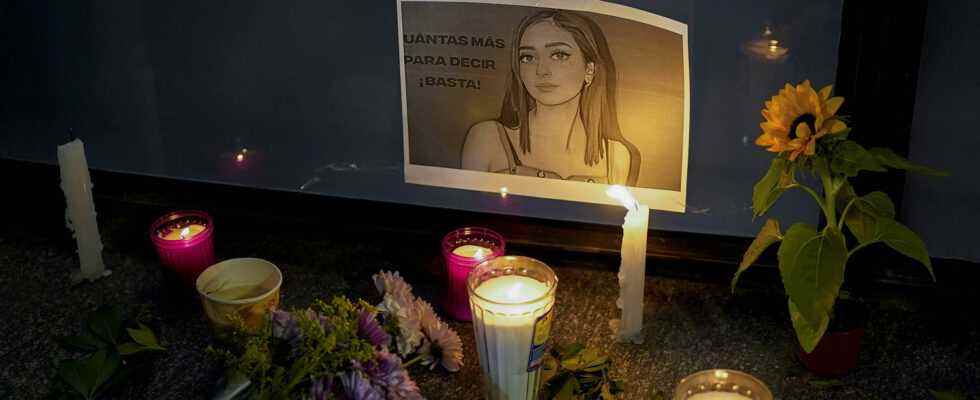The partial results of a new autopsy carried out after the death of the young Debanhi in Mexico revealed that the young woman succumbed to asphyxiation.
For several months, the story of Debanhi has caused anger and grief in Mexico. Last April, the 18-year-old disappeared, sparking an unusual wave of outrage. Twelve days after she was last seen, her body was discovered in a motel cistern. Initially, an independent expert revealed that Debanhi had been murdered and sexually assaulted. This first autopsy had indicated that the corpse “showed signs of sexual violence” and that she had lost her life “before her body was entered or disposed of”.
1er July, the body was exhumed in order to carry out new analyses. On Monday, preliminary results showed that the young woman had lost her life by asphyxiation, “by suffocation”, said Felipe Takeshi, director of the Institute of Forensic Sciences of the Superior Court of Justice in Mexico City. The institute is taking part in the investigation led by a private detective hired by the victim’s family. Felipe Takeshi explained that Debanhi had probably lost his life between three and five days before his corpse was discovered. He also excluded the track of sexual violence, contrary to what the first report indicated. “No evidence was found, no clue that could support the presence of sexual violence,” he said.
“My daughter did not die accidentally”
These new expert reports aim to officially determine the causes of death. The first autopsy claimed she had suffered a blow to the head but could not say if it was an accident or a crime. For his father, however, the assassination is not in doubt. “My daughter did not die accidentally, that’s my hypothesis,” he said, quoted by the local press. “Any process of femicide, because it is femicide, is long, but I have peace of mind to see that we are making progress.”
The case, which took place in the prosperous northern city of Monterrey, sparked an unusual outcry in Mexico, where a wave of feminicides has been raging since the 1990s, hitting poor women particularly hard. That it affected a middle-class university student resonated louder among wealthy people, according to experts consulted by AFP. Interest in the Debanhi affair has gone beyond the country’s borders, from Peru to the United States. In 2021 alone, 3,751 women were murdered, including 1,004 cases considered femicides, and nearly 100,000 disappeared.
